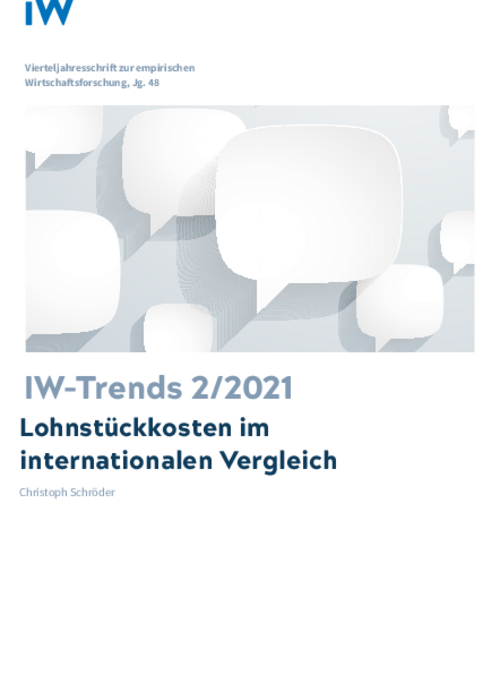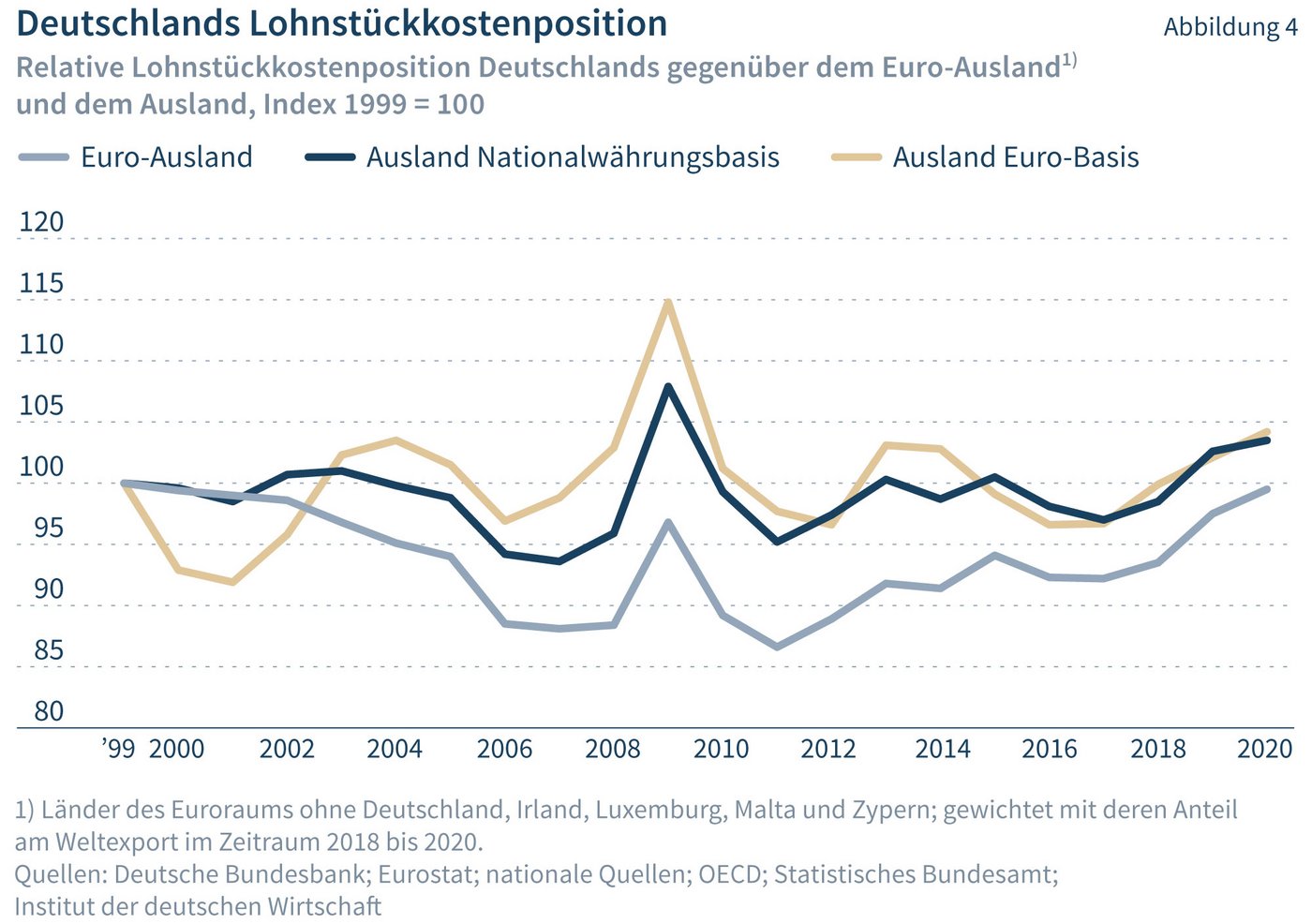Since 2018 An international comparison reveals the high level of unit labour costs in German manufacturing. In 2020, German unit labour costs were 22 per cent higher than the average in the 27 comparator countries, and 18 per cent above the mean in the rest of the Eurozone.

An International Comparison of Unit Labour Costs: A Heavy Burden on German Industry

Since 2018 An international comparison reveals the high level of unit labour costs in German manufacturing. In 2020, German unit labour costs were 22 per cent higher than the average in the 27 comparator countries, and 18 per cent above the mean in the rest of the Eurozone.
Thus productivity, which in Germany was only slightly above average, by no means compensated for the disadvantage of high labour costs. From 1999 to 2020, unit labour costs in German industry increased by 13 per cent overall. This rise matched that in the rest of the euro area and was somewhat stronger than the average of the 27 comparator countries. The deterioration in Germany's unit labour cost position has been especially marked since 2018. The industrial recession of 2019 had already caused a 6 per cent rise in unit labour costs and the impact of the Corona pandemic in 2020 was no less severe. At the same time, productivity over these last two years has suffered a particularly noticeable decline. The long-term prospects for German industry’s relative unit labour cost position are affected by a range of highly diverse developments. Following a sharp deterioration in the 1990s, Germany made up considerable ground after the turn of the millennium. Once the sector had overcome the global financial crisis, however, its unit labour costs again rose more than in all other comparator countries and considerably more than in the rest of the Eurozone. In view of the major structural challenges posed by digitalisation and decarbonisation, German industry is faced with a need for expensive investments. If these are to be satisfactorily financed and employment secured, the sector’s cost competitiveness must be significantly improved.


An International Comparison of Unit Labour Costs: A Heavy Burden on German Industry

More on the topic

German Wage Policy between Inflation and Stagnation: Are Conflicts with the Aims of Monetary Policy Looming?
After the economic and financial crisis of 2008/9, the German labour market soon began to recover, creating scope for a comparatively expansive wage policy.
IW
The Pros and Cons of Trade Union Membership
The decline in collective bargaining coverage in Germany is often attributed to the reluctance of companies to join an employers' association which negotiates collective agreements.
IW